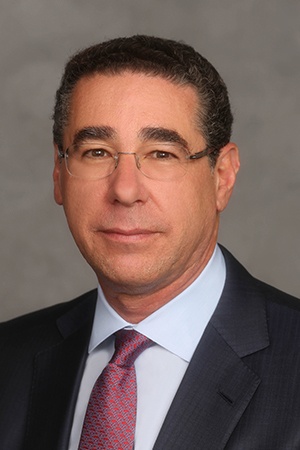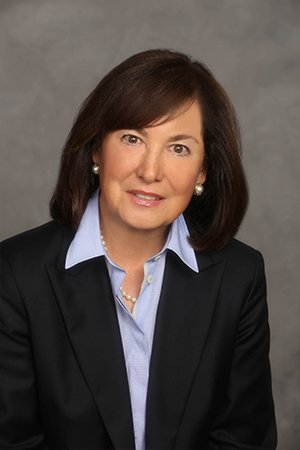De Caro & Kapen, LLP: Press & Media Center
De Caro & Kaplen, LLP, welcomes press and blogger inquiries and is available to comment on all aspects of brain injury law, personal injuries, medical malpractice, and all types of accident law. The partners are also available for comment on the ongoing NFL and NHL concussion lawsuits, proposed legislation for youth tackle football, and concussion in youth sports.
About De Caro & Kaplen, LLP
De Caro & Kaplen, LLP is a nationally recognized New York personal injury law firm with a special emphasis on traumatic brain injury cases. The firm’s partners, Shana De Caro and Michael V. Kaplen represent victims of brain injury caused by motor vehicle accidents, truck and bus crashes, premises and construction accidents, and medical malpractice in their struggle to receive just and fair compensation.
Preferred lawyers Brain Injury Association of America, Best Law Firm (US News and World Report)

Michael V. Kaplen is a senior partner in the New York personal injury law firm, De Caro & Kaplen, LLP. His practice focuses on personal injury and medical malpractice with an emphasis on representing individuals who have sustained a traumatic or acquired brain injury and other catastrophic injuries.

Shana De Caro is a senior partner in the New York personal injury law firm, De Caro & Kaplen, LLP. Her practice focuses on personal injury and medical malpractice with an emphasis on representing individuals who have sustained a traumatic or acquired brain injury and other catastrophic injuries.
De Caro & Kaplen Logo
The Invisible Rain Cloud
(embed from youtube with link credit to staging.brainlaw.com)
Living With A Stranger
(embed from youtube with link credit to staging.brainlaw.com)
The Concussion Delivery System
(embed from youtube with link credit to staging.brainlaw.com)
The Little Bird Who Forgot How To Fly
(embed from youtube with link credit to staging.brainlaw.com)
Living with a Brain Injury During Covid-19
(embed from youtube with link credit to staging.brainlaw.com)
Brain Injury Litigation Spreads To Other Sports After Huge NFL Settlement
Michael Kaplen, New York Law Journal (04/12/2022)
As for the injured, while the diagnosis is a mild TBI, “there’s nothing mild about a brain injury,” Michael Kaplen, a brain injury lawyer and a lecturer at The George Washington University Law School, told Insider.
“The term mild is really a misnomer when it comes to traumatic brain injury,” he explained. “It trivializes a very serious and significant injury.”
The common use of the word “mild” to characterize a TBI has its genesis in the Glasgow Coma Scale (GCS), a basic tool for emergency trauma care which ranks head injuries as mild, moderate, and severe. “It has become misused to characterize what a brain injury is in terms of its consequences,” Kaplen said.
Any brain injury can have certain troubling physical, cognitive, emotional and behavioral repercussions, some of which may last a lifetime.
Michael Kaplen, Business Insider (01/31/2020)
Outrage over Trump downplaying troop injuries
Michael Kaplen, chair of the New York State Traumatic Brain Injury Services Coordinating Council and past president of the Brain Injury Association of New York State said that he was “shocked at the ignorant statement” made by Trump at a press conference earlier today discussing traumatic brain injuries.
“To equate traumatic brain injuries as just a headache is insulting and disrespectful to the thousands of military service members suffering from the signature wound of the Iraq/Afghanistan conflict,”
Michael Kaplen, The Guardian (01/22/2020)
NY lawmakers consider ban on tackle football for children
Attorney Michael Kaplen, who teaches a course on traumatic brain injury at George Washington University, said that allowing young children to participate in organized tackle football “is the equivalent of playing Russian roulette.”
“Evidence continues to accumulate that children who engage in tackle football have a greater risk of sustaining a life-altering brain injury,” Kaplen told members of the committee chaired by Assemblyman Richard N. Gottfried.
Michael Kaplen, Associated Press (10/30/2019)
NFL Players Want Claims Revived Against Helmet Co. Riddell
“It might also give us some further insight into what the NFL knew, and should have known, that has been hidden from public view,” Kaplen said. “The public has a right to know about all of this. It doesn’t only affect NFL players.”
Michael Kaplen, Law360 (05/15/2019)
Should Your Kid Play Football?
“The NFL and other organizations have launched an effective publicity campaign to convince public officials, educators and parents that football can be made safe,” Kaplen says. “This is based on distortion and misinformation designed to deceive those concerned with the health and safety of children who engage in tackle football.”
Michael Kaplen, Family Minded (03/21/2019)
NHL Ends Concussion MDL With $19M Tentative Settlement
Attorney Michael Kaplen of De Caro & Kaplen LLP, who specializes in traumatic brain injury cases, called the amounts that could go to the NHL players “extraordinarily low.” “What bothers me is that amount does not recognize the seriousness of this type of injury,” Kaplen said. “Anyone who has a brain injury will have lifelong consequences, and this type of settlement in no way, shape or form recognizes the seriousness, and in some ways minimizes it.”
Michael Kaplen, Law360 (11/14/2018)
The Coach Says He’s ‘Built for Football.’ His Parents Worry About C.T.E.
De Caro & Kaplen’s youth tackle football portal cited by The New York Times.
staging.brainlaw.com, New York Times (09/21/2018)
NCAA Avoids Adverse Verdict, Settles CTE Case Mid-Trial
“That principle of law might cause liability to attach to them in a variety of different cases because plaintiffs attorneys will be able to look to this particular case and say a jury made a decision on certain issues against the NCAA even if at the end of the day they find no causation in this particular factual circumstance between the NCAA’s conduct and the ultimate death of this man,”
Michael Kaplen, Law360 (06/24/2018)
Insurers ask for NFL concussion documents
“If this gets out to the public it would be a Pandora’s box, it will be the NFL’s worst nightmare coming true,” said Michael Kaplen, a trial attorney specializing in traumatic brain injury, and who filed briefs several years ago opposing the NFL concussion settlement on behalf of the Brain Injury Association of America. “That’s why they settled the case with the players to begin with because they didn’t want to release this type of documentation.”
Michael Kaplen, BizJournals (04/13/2018)
NFL stalling on concussion payouts, ex-players say
Michael Kaplen, a Pleasantville, New York-based attorney for the Brain Injury Association of America, is not surprised by the players’ growing uneasiness about the settlement.
“It’s playing out exactly as I predicted,” Kaplen said.
In October 2016, Kaplen wrote a brief to the Supreme Court asking the country’s ultimate judiciary to take a look at a settlement that, according to Kaplen, “neither recognizes nor compensates the majority of players suffering the long-term consequences of brain trauma.”
Michael Kaplen, Newsday (04/01/2018)
Dementia claims in NFL concussion settlement are going unpaid, lawyers say
“It’s played out the way I anticipated,” Kaplen said in an interview. “These players are beginning to wake up and understand the settlement is a fraud. The majority of players who deserve compensation are not going to get compensation.”
Michael Kaplen, Washington Post (03/20/2018)
Mom sues for $45M over missing stop sign that caused son’s crash
“As a result of the missing stop sign, the vehicle in which Oddetth and Kaiden were passengers was struck by another vehicle,” Davidson’s lawyer, Michael Kaplen, said.
Michael Kaplen, New York Post (02/01/2018)
Golfer sued for throwing golf club, hitting woman in the head
“The gentleman we’re suing wasn’t particularly pleased with his performance,” Touhey’s attorney Michael Kaplen said, in a gross understatement.
Michael Kaplen, New York Post (01/23/2018)
In Bronx, Obstetricians May Find Work Inspiring, and Careers Hindered
Michael Kaplen, a New York City malpractice lawyer and member of the American Board of Professional Liability Attorneys, said that if doctors were choosing not to practice in the Bronx, financial considerations, not malpractice claims, were most likely the reason.
Michael Kaplen, New York Times (12/15/2017)
The Brains In Football: Meet the doctors trying to solve NFL’s CTE issue
“Football is a concussion-delivery system. You cannot make it safe because after any hit, the brain is moving within the skull,” says Kaplen. “There is no such thing as safe tackling. This whole focus on CTE — while troubling in terms of the nature of the disease — is misdirected in terms of the problem. The problem is repetitive head trauma, where CTE is one of many end results. Repetitive hits cause brain damage.”
Michael Kaplen, New York Daily News (02/07/2017)
Lender Deceived Ailing N.F.L. Retirees, Suit Claims
“I’m concerned about injured players being victimized again by unscrupulous money lenders posing as concerned friends,” said Michael Kaplen, a lawyer and a former chairman of the New York State Traumatic Brain Injury Services Coordinating Council. “Protections need to be put in place by their attorneys, who purportedly are representing their interests.”
Michael Kaplen, The New York Times (02/07/2017)
Supreme Court ruling paves way for NFL retirees to receive concussion benefits
“It wasn’t unexpected,” Michael Kaplen, the past president of the Brain Injury Association of New York and an attorney specializing in brain injury cases, said of the Supreme Court’s decision. “But what you will see is players realizing they are not going to receive anything. Their lawyers are going to have to explain how their clients were hoodwinked into thinking this was such a great settlement.”
One of the problems of the settlement, Kaplen says, is that if an NFL player is diagnosed with the crippling, degenerative brain disease, chronic traumatic encephalopathy (CTE), after the date of the settlement, he would not be entitled to benefits. “They will get nothing,” said Kaplen. “There is going to be a revolution when guys realize they’re getting nothing. It will be interesting to watch the claims resolution process. It’s stacked against these players.”
Michael Kaplen, New York Daily News (12/12/2016)
Trump knocks ‘softer’ NFL rules: ‘Concussions — ‘Uh oh, got a little ding on the head?
George Washington University Law School’s Michael V. Kaplen, who specializes in the legal issues surrounding brain injury, told the New York Daily News that Trump’s dismissal of the concussion protocol “demeans and disparages people with brain injuries.” Each year, 2 million people in the United States suffer from a brain injury, he said.
Michael Kaplen, The Washington Post (10/13/2016)
Concussion Cases Inspire New Course at George Washington’s Law School
“It’s a constant battle that really defaults every step of the way to the legal profession to handle on behalf of the millions of people who get injured,” Kaplen told his students last month. “The legal profession becomes in one way or another the champion because nobody else is there to do it. The lawyer has to become the doctor, has to become the social worker, has to become the neuroscientist and put that together for the individual.”
Michael Kaplen, The New York Times (04/13/2014)
Local expert says NFL, Roger Goodell have ‘moral responsibility’ to protect players from concussions
The NFL, Kaplen says, still has a long way to go when it comes to head injuries.
“Let’s give him his due,” Kaplen says of Goodell. “But don’t forget that the NFL was disingenuous for a long time when it came to brain injuries – and that is being kind. They denied what everybody knew about brain injuries and long-term health problems for years. They were like the tobacco companies denying the dangers of smoking.”
Michael Kaplen, New York Daily News (10/23/2010)
Featured In

Latest Press Releases
03/31/2022:
Brain Injury Awareness Month: Over 25,000 Americans Now Carry Brain Injury ID Card
03/23/2022:
Brain Injury Awareness Month: Video Highlights Impact Of Brain Injury On Individuals And Families
03/16/2022:
03/01/2022:
Brain Injury Awareness Month: New York Law Firm Launches “Brain Injury Facts” Hub
11/29/2021:
11/24/2021:
11/11/2021:
11/05/2021:
De Caro & Kaplen LLP Announce 2021 Traumatic Brain Injury Scholarship Winner
10/29/2021:
03/04/2022:
03/02/2021:
03/01/2021:
Brain Injury Awareness Month: 21,000 Americans Now Carry a Brain Injury Identification Card
01/07/2021:
Brain Injury Attorney Shana De Caro Elected Chairwoman Brain Injury Association of America
10/15/2020:
De Caro & Kaplen LLP Announce 2020 Traumatic Brain Injury Scholarship Winner
09/08/2020:
New York Brain Injury Lawyers Launch “Brain Injury Insider” Video Series
05/05/2020:
03/03/2020:
Brain Injury Awareness Day: New York Lawyers Call For More States To Adopt Bicycle Helmet Laws
03/02/2020:
01/07/2020:
New York Brain Injury Attorney Elected as Vice Chair of the Brain Injury Association of America
11/07/2019:
15,000 Americans Now Carry Brain Injury Identification Card
10/28/2019:
Contact Information
De Caro & Kaplen, LLP
228 E. 45th Street, Suite 1100, New York, NY 10017
t: (212) 732-2262
e: press@brainlaw.com
